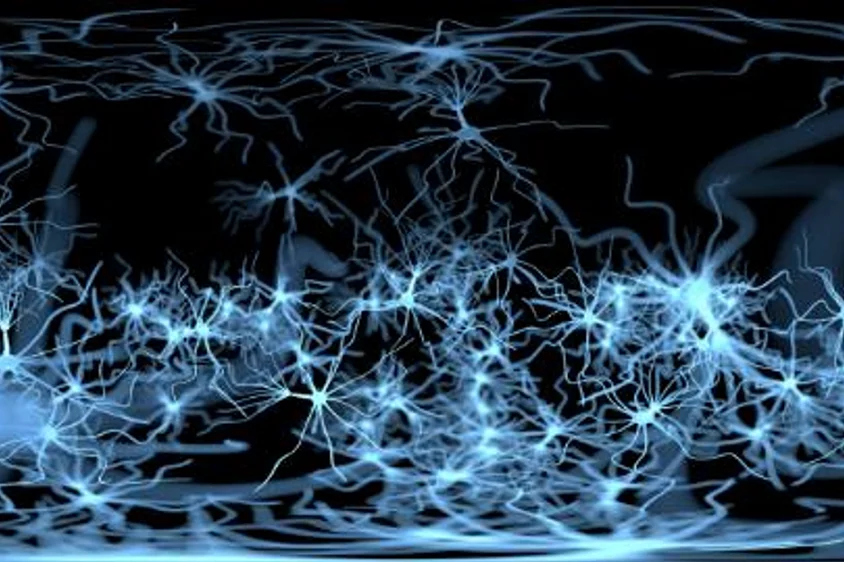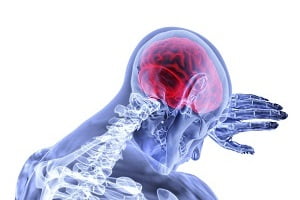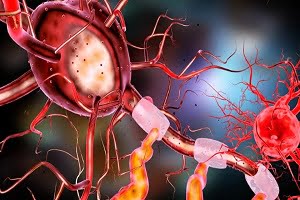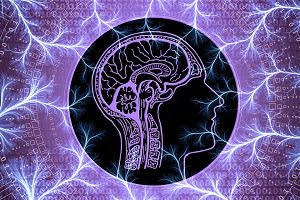Peripheral neuropathy refers to nerve damage; the damage can occur to a single or a group of peripheral nerves. The transfer of signals from the central nervous system to the peripheral nervous system is lost. Different conditions can lead to chronic peripheral neuropathy; however, the most common cause is diabetes. The symptoms depend on the type of damaged nerve. There are three types of nerves present in the body, i.e., sensory, motor, and autonomic nerves. Neuropathy can either damage all these types of nerves individually or together. The treatment is given to treat the underlying cause of neuropathy and to increase maximum independency.
The peripheral nervous system has a combination of nerves that transmit a signal from the brain to the spinal cord and other parts of the body like arms, legs, and other organs. Peripheral nerves also bring back the signal from organs to the spinal cord to the brain. Peripheral nerves also play an essential role in a reflex action; for example, when we touch something very hot and cold, the brain gets that information through peripheral nerves. When these nerves are damaged, this reflex action is lost.
- Sensory Nerves: These nerves help in transmission of electric impulses and feeling sensations like pain, cold, and hotness.
- Autonomic Nerves: These nerves help in transferring signals to organs and glands; they also help control body functions that are not directed consciously. Some of the examples of such activities are bowel moment, beating the heart, breathing, sweating, etc.
- Motor Nerves: These nerves transmit electric impulses to the muscles and help in stimulating the movement of muscles.
At times peripheral neuropathy is diagnosed when patients visit for their regular checkups for diabetes. People consult specialists because of the symptoms like pain and numbness in the arms and lower legs. Following are some of the diagnostic methods for peripheral neuropathy:
Physical Examination
In this test, doctors usually ask questions about the health history of the patient, past exposure to toxic substances, diabetes history, and family history of diseases related to the nervous system. Doctors may also ask about recent trauma and accidents.
Nerve Conditioning Test
This test is done to determine the speed of transmission of electric signals through nerves from the brain to body parts. Particular types of sticky electrodes are placed on the nerves being tested. These electrodes are similar to the electrodes which are used during heart monitoring, electrocardiogram, or ECG. The electrodes generate an electric impulse, and the time taken to travel to another electrode is recorded. In peripheral neuropathy, this speed is reduced.
Electromyography
An electrode is attached with a very thin needle that is inserted in the muscle through the skin. Electromyography is used to determine the electrical activity of muscles. An oscilloscope is a recording machine attached to this setup and is used to monitor the stimulation of the electric impulse in muscles by electrodes. The patient is asked to contract his/ her muscle either by folding his/ her arm or bending his leg.
Skin Biopsy
This diagnosis technique is used to determine peripheral neuropathy and response to the treatment provided. A 3mm of skin is extracted with a punch biopsy; the skin’s extraction can be done anywhere from the body after giving local anesthesia. The piece of skin is examined under a microscope for the density of the nerve fibers. In peripheral neuropathy, the thickness of nerve fibers decreases.
Nerve Biopsy
In this technique, a small part of the nerve is dissected; the preferable part is the neck or wrist. The nerve is examined under a microscope to identify inflammation in the nerve, nerve degeneration. Excision of the nerve is done under local anesthesia. The wound is then stitched; self-dissolving stitches are used. Some anti-allergic are often prescribed. If any other complications arise, then consultation with the doctor is preferred.







